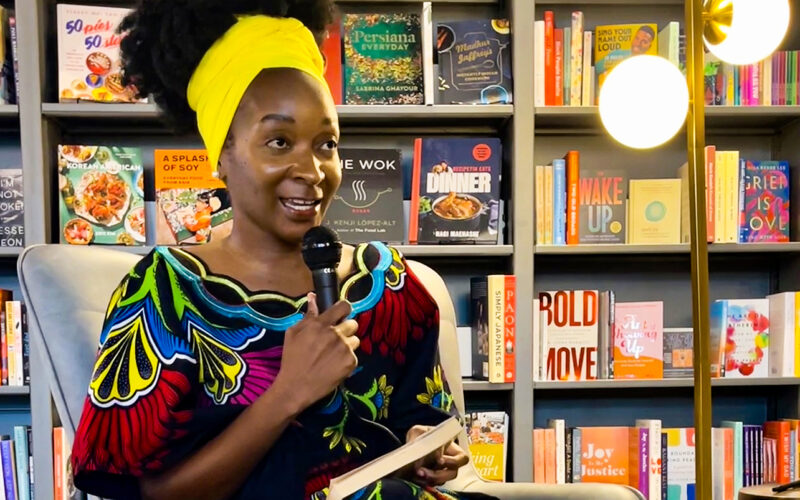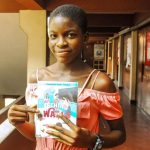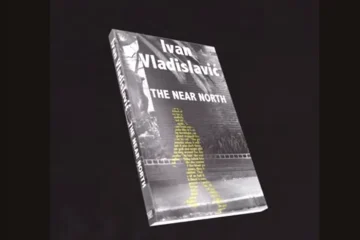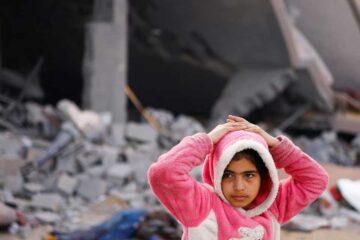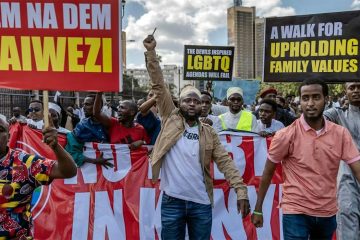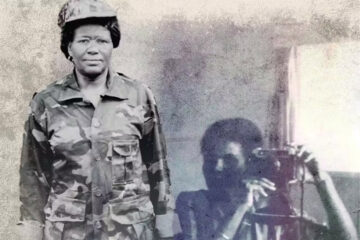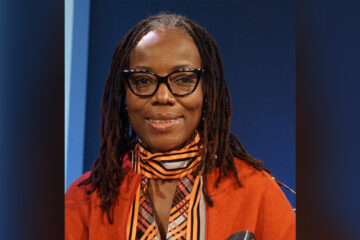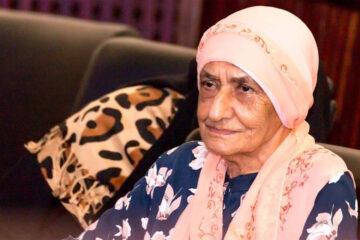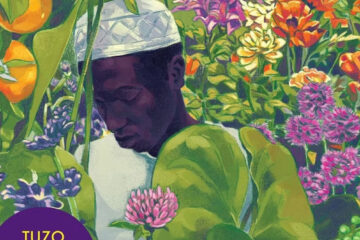MUBANGA Kalimamukwento is a Zambian human rights lawyer and award-winning writer who has written extensively about the intimate lives of characters facing unimaginable challenges during the AIDS epidemic in Zambia.
Her latest but unfinished novel earned her a place as a 2023 Miles Morland Scholar, a scholarship scheme which aims to give African writers of both fiction and non-fiction the financial freedom to complete an English-language book.
The following is an extract of a longer conversation.
In your first novel, the Mourning Bird, you choose to write from the perspective of a child; why did you choose to do this?
You’ll notice for most of my writing, if you read some of my other work, that I’m very interested in the perspective of children; how children experience everything in the world.
A lot of the time my stories are based in the mid to late 90s, which is when I was a child, at least before my teenage years. As far as HIV is concerned in particular, I have a very personal relationship with it. Firstly, I want to say part of the reason why I’m interested in writing stories from the point of view of children and this specific story from the point of view of the child was, there’s a veil between children and everything that’s going on in the world. In the sort of way that they are excluded, partly to protect them. But I’m always curious about how they experience those moments.
In part, because there’s so many things that you can’t explain to them, the vocabulary doesn’t allow, but they still experience the loss. So if a parent or a sibling dies, as it happened in the case of Chimuka, the child still experiences the loss but isn’t included in gaining an understanding of how that came to be or why. So that can lead to a lot of confusion. But I think it can also lead to repetition. It’s been a while since those years and I feel like there’s probably a generation of children that doesn’t remember. I don’t know how much you remember. But I remember the way funerals are done in Zambia, they typically put up a tent outside the home of the person who died to mark that a death has occurred.
So everybody in the neighbourhood knows that there’s a funeral here… I remember coming home from school and it was almost like today you’d have a tent here, tomorrow it would be at another house, the other day another house. That rapidness of death… because adults have their spaces where they can express their memories. They can write their stories, but I was mostly interested in how children navigated that space.
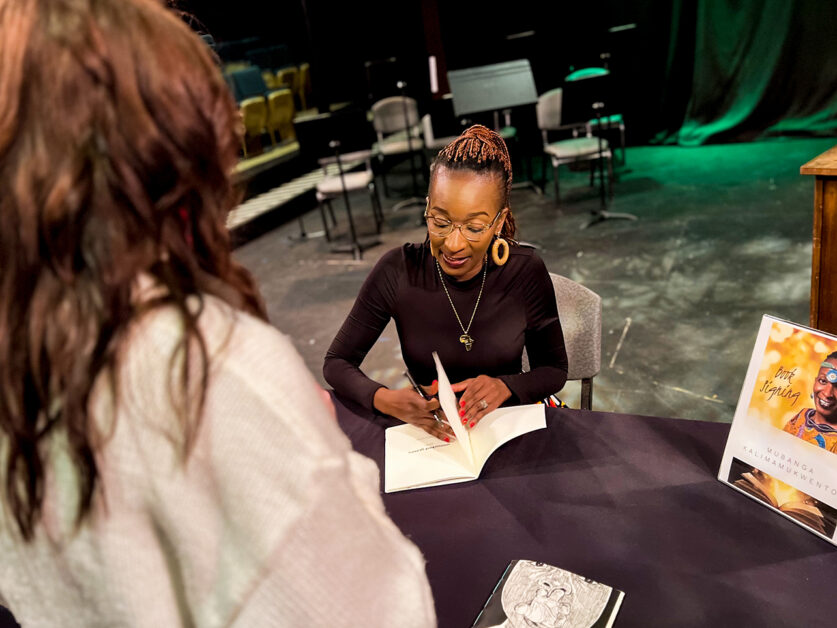
That is a whole other topic about talking to kids, but I think we are doing better now with information being broken down.
I remember we weren’t getting any sex education for sure. But there was a very big emphasis on abstinence. And you’ve been a teenager, we’ve been teenagers…
It’s more about giving them the tools to be able to navigate what is already in existence in the world. And that’s why I made the comparison of COVID. Because I would imagine I didn’t have teenagers, but I did have a very extroverted 6-year-old at the beginning and it was hard for him, the transition into learning everything online. He wanted to interact with his friends.
So when they did go back into the school system, when it opened back up, we couldn’t realistically say, “don’t play with anyone or talk to anyone.”
It’s a different comparison altogether, but the best way we could protect him was to say, “make sure you keep your mask on when you’re in class, or only take it off when you’re eating or when you go outside” or “if you start to feel sick, if you start to feel X,Y,Z, tell us right away, so that we pull you out of the class.” But because HIV was transmitted through sex, there was also the shame factor. So I think that’s where some of the discomfort came from. I think maybe parents might have felt like if they tell their kids that they need to use protection, it was almost like telling them they need to have sex or like they should have sex.
And it’s an overarching thing all over. Teenagers, rather, young people who are engaging in sex, especially ladies, can’t just go to the clinic and say they need contraception… There’ll be questions, like: ‘Why are you even having sex?’ So, most of them just suffer in silence resulting in unwanted pregnancies and even HIV/AIDS. What do you make of this?
There’s the shame factor again. Because what a lot of my work is interested in is like investigating those silences. Like why are we silent? What’s the cost of this silence also? Because I think there’s a lot of ways that silence can be interpreted. There’s a lot of arguments we can make; this thing is sacred; these things should only be spoken about within these spaces. But you have to set the silence aside if it’s at the cost of human life. I think a lot about euphemisms and how people are very uncomfortable saying HIV and saying AIDS especially in relation to themselves. I think a lot of people have gotten past that initial… I don’t know what you would call it, but like people were not even able to talk about other people having HIV or other people having AIDS, even if those people themselves use the word.
I was reading an essay you wrote, ‘Pretend’. It’s so personal, and secondly, I could read undertones of survivor’s guilt. Was it a reflection of personal experiences?
It’s very much a reflection of personal experience. I was just going back to a specific moment, in 1996. I think that the essay covers probably just 2 days.
So it’s about the last time that I saw my sister… She was born with HIV so she died when she was 6 and I was 8. So that’s what I was sort of travelling back to.
…I wrote it as a letter to my sister, my sister didn’t get to grow up. She didn’t get to live the way I lived. Of course you feel guilty, you are 8 years old and your little sister dies. You’re trying to compute, why? My first thought was that we used to fight, but the way siblings do and I was like, did I hurt her? And also another thing, I wanted to trade the time. And the difficulty that I experienced was that most of the people in that story have died; my mom has died, my dad has died, the uncle that’s in the living room with me when my dad walks in, he has died…
So all the people who shared that experience with me are not here to confer with me because your memory can deceive you…
It was very reassuring because I was writing such a personal story, but it didn’t just belong to me alone. My sister is in that story. My mom is in that story… So I wanted to make sure it’s different from fiction because in fiction I could go wherever I wanted because it’s made up. But with the essay, I wanted to make sure that I was getting the dates right and things like that. It was actually very reassuring.
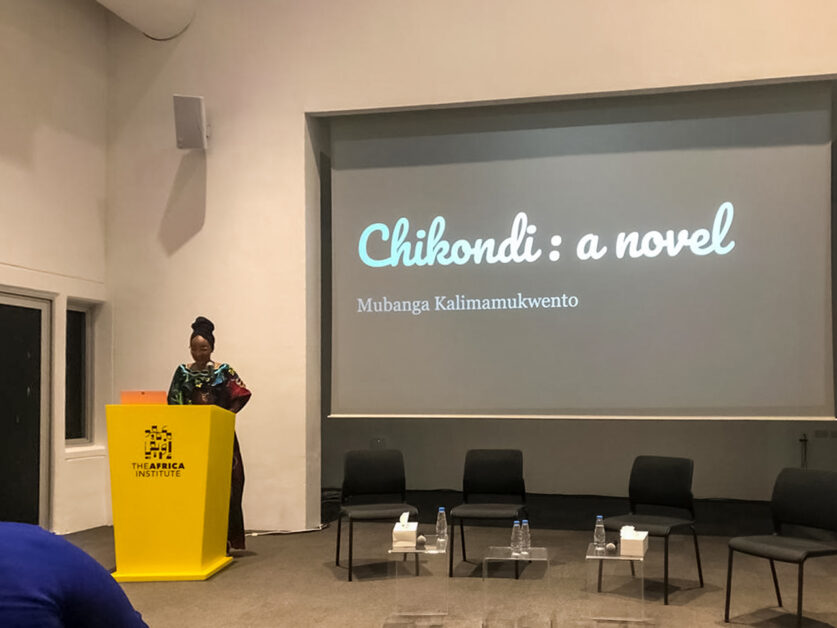
Grief is a recurring theme in most of your stories. In ‘my mother’s silence’, especially the presence of family bonds or lack thereof. When it comes to talking about HIV and in connection to that grief, is this intentional that these themes keep on repeating themselves in your work and what you hope to achieve with this?
I don’t think it’s intentional. I think every writer has an obsession. And I think there’s multiple ways to talk about the same thing within different genres.
So with the Mourning Bird, I think my starting point was, I was thinking about street children. Zambia has a very high population of street children.
To the extent that the extended family, as we know it, changed. Because in a lot of African cultures, the extended family takes an active role in raising children; it’s not just mother, father, children. But AIDS took so much of that because so many families were dying.
And so there was only so much that the extended family could do, right? Especially if the extended family is also contending with this one issue. I was thinking about those children of the 90s specifically, I was curious. And obviously, this is a work of fiction. So there’s a lot of theorizing going on. But I was curious about how those children ended up on the street. I was thinking about how fortunate I am. My parents died when I was 10 and 11 and my sister died when I was 8. So basically my entire immediate family died within a period of 3 years and because I was a child, nobody really explained what happened. People would just say they got sick and then they died. But think of yourself as an 11-year-old, that doesn’t make sense, especially if you are also experiencing your friends who have got their parents and their siblings.
You are a trained human rights lawyer. How does it influence your writing?
It does drop in my writing in surprising ways. I would say I practised different areas of law for different periods of my life. So at the beginning of my career, I worked in private practice for a short while, and then I worked for a non-governmental organisation called Women and Law in Southern Africa.
I think a bigger piece of what shows up in my writing is actually the courtroom, thinking about the courtroom as a place to attain justice. But how it’s almost like when I was talking about this veil between children and the world, the way the world treats children and the way the world talks to children. I think courtrooms can be similar in that there is a language in the courtroom that people who are not trained in the law don’t understand and aren’t privy to.
This year’s World AIDS Day theme is Let Communities Lead, what do you think “Let Communities Lead” can achieve for HIV/AIDS in the coming years?
I think Let Communities Lead is about bringing up conversations that encourage people from within the community to speak for themselves. So instead of people in power positioning themselves as being a voice for the voiceless, passing the mic and allowing people to speak using their own voice. I think “own stories” are really powerful as far as changing narratives for HIV but also in other aspects of life. So that’s a very powerful theme that we have this year.

